Turkish soldiers inside Syria abducted by Islamist rebels, news reports say
BY ROY GUTMAN
McClatchy Foreign Staff
ISTANBUL — Turkish troops conducting a resupply mission to a small Turkish military post inside Syrian territory were ambushed and detained Wednesday by Islamic extremists affiliated with the Islamic State of Iraq and Syria, according to Turkish media reports.
The troops were later returned to Turkey, news outlets in the Turkish city of Sanliurfa said. But it wasn’t clear what happened to the four armored personnel carriers they’d been traveling in. One report said ISIS had kept the vehicles, which had been seen flying ISIS flags.
Prime Minister Recep Tayyip Erdogan on Wednesday confirmed that a convoy had been sent to the tomb of Suleyman Shah, the grandfather of the founder of the Ottoman Empire. The tomb lies about 15 miles inside Syria, but Turkey claims sovereignty over the area under a 1921 territory. Erdogan said the convoy had been sent to deliver supplies to the Turkish military contingent assigned to guard the tomb.
He did not, however, mention the ISIS ambush or the abduction of the Turkish troops, an incident that could put Turkey’s military, widely regarded as the region’s best equipped, on a collision course with ISIS, whose militants are fighting both Syrian government forces and other anti-government rebel groups for control of eastern Syria.
“Right now, the issue is not about ISIS,” he told reporters in Ankara. “The job of our convoy is to transfer aid to the Suleyman Shah tomb.”
The Turkish military said the dispatch of the convoy was a planned activity, and nothing out of the ordinary.
Local news reports said the vehicles crossed into Syria from the Sursitpinar border gate and were ambushed near the town of Manbij. The troops – the exact number was not reported — were then taken to Manbij and later repatriated to Turkey, Sanliurfa.com reported, citing local Syrian sources and another unnamed source.
The news portal, without naming its source, said that the vehicles, after their capture, were being driven about with ISIS flags on them.
In mid-March, ISIS demanded that Turkey abandon its military outpost at the tomb and threatened to attack and destroy it. This apparently gave rise to a secret conversation among top Turkish officials about whether Turkey should seize the opportunity to take on ISIS, an Iraq-based offshoot of al Qaida that is also fighting the Iraqi government for control of western Iraq and is considered a serious menace to regional stability. Al Qaida leaders denounced the group earlier this year for disobeying orders to withdraw from Syria, where another rebel group, the Nusra Front, is al Qaida’s recognized affiliate.
A recording of the secret conversation about a possible incursion into Syria was posted on YouTube and proved deeply embarrassing to the Erdogan government, which launched a major investigation to find the source of the security breach. The government also blocked access to YouTube and Twitter in an effort to halt dissemination of the recording.
According to news accounts, Foreign Minister Ahmet Davutoglu can be heard on the recording saying that “without a strong pretext,” Turkey would not receive support for an intervention into Syria from the United States or other allies. The chief of Turkish intelligence, Hakan Fidan, reportedly responded that “if needed, I would dispatch four men to Syria” and “have them fire eight mortar shells at the Turkish side and create an excuse for war.” He added: “We can also have them attack the tomb of Suleyman Shah as well.”
If the government was seriously considering doing anything at the time, it was put on hold following the publication of the discussion.
Based on the scanty details available Wednesday, it wasn’t possible to determine whether the resupply convoy was a genuinely routine operation or a probe to test ISIS’s intentions.
via ISTANBUL: Turkish soldiers inside Syria abducted by Islamist rebels, news reports say | World | The Sun Herald.

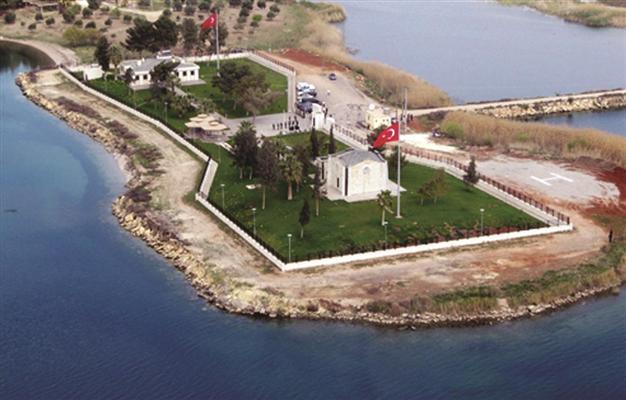

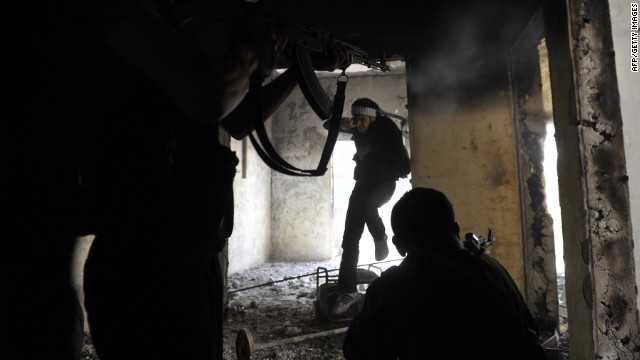
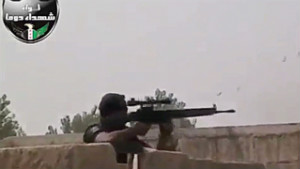 Rebels attack army barracks in Damascus
Rebels attack army barracks in Damascus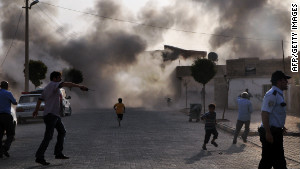 Turkey-Syria ties strained by violence
Turkey-Syria ties strained by violence
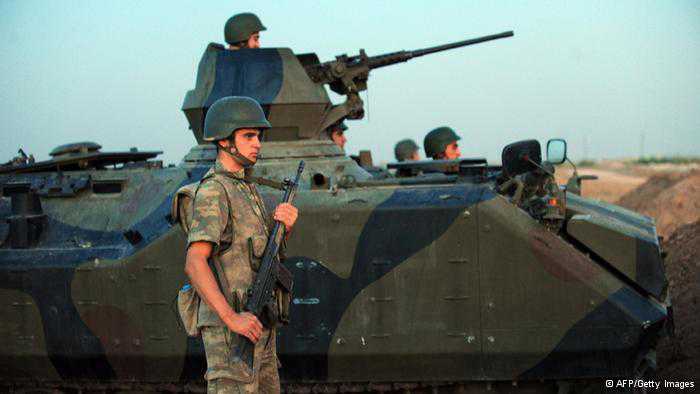
 Turkish troops are mobilizing along the Syrian border
Turkish troops are mobilizing along the Syrian border
 Turkey had hoped not to have problems with the neighbors, but it’s proving difficult
Turkey had hoped not to have problems with the neighbors, but it’s proving difficult
 Conflict with Syria also threatens Turkey’s relations with some of its other neighbors
Conflict with Syria also threatens Turkey’s relations with some of its other neighbors
